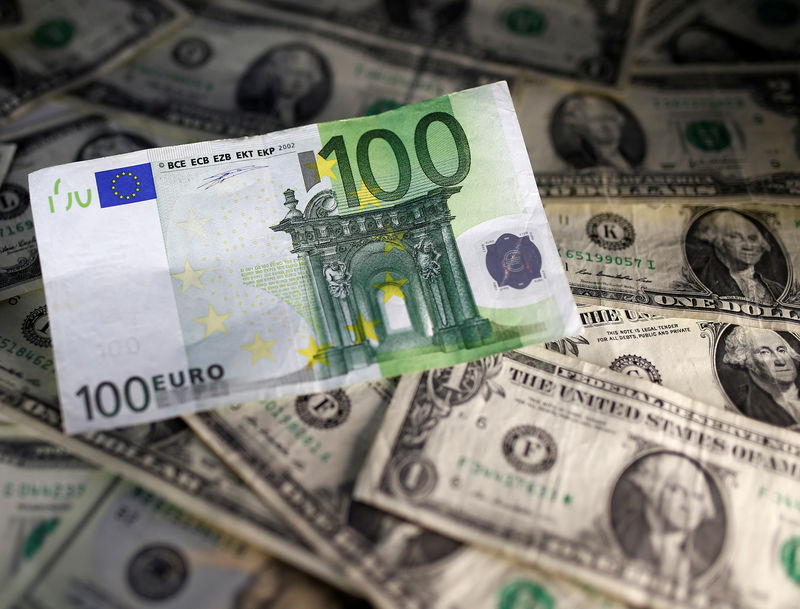Investing.com - The U.S. dollar bounced higher against a basket of the other major currencies on Thursday after falling to 11-month lows earlier in the week, while the euro dipped ahead of a European Central Bank meeting that could herald a policy shift.
The U.S. dollar index, which measures the greenback’s strength against a trade-weighted basket of six major currencies, was up 0.18% to 94.81 by 06.46 a.m. ET (10.46 a.m. GMT), pulling away from the 11-month low of 94.27 touched on Tuesday.
The dollar has come under pressure amid mounting speculation that the subdued inflation outlook in the U.S. will undermine the case for the Federal Reserve to raise interest rates once more this year as policymakers have indicated.
The prospect that other central banks may join the Fed in policy tightening has also fed into dollar weakness.
The dollar has also been pressured lower as failed attempts by Republicans to reform healthcare indicated that President Donald Trump’s other legislative efforts, such as overhauling the tax code and implementing fiscal stimulus could face difficulties.
The euro was a touch lower, with EUR/USD at 1.1509, not far from Wednesday’s 14-month highs of 1.1582.
Anticipation was building ahead of Thursday’s meeting after ECB President Mario Draghi sent the euro higher with hawkish comments on the euro zone recovery in a speech in Sintra, Portugal late last month.
The remarks appeared to signal a shift towards tapering monetary stimulus, but Draghi also reiterated that any changes to the stimulus program will be “gradual” and “cautious.”
The ECB is facing a balancing act between reducing stimulus as the economy strengthens while markets remain jittery and inflation remains below the bank’s target.
The dollar gained ground against the yen, with USD/JPY rising 0.36% to 112.34 after the Bank of Japan kept monetary policy on hold overnight and said that inflation risks were sked to the downside.
The warning on inflation reinforced expectations that the BoJ will lag other central banks in tightening monetary policy.
Sterling was also lower against the stronger greenback, with GBP/USD down 0.54% to 1.2954 despite stronger than forecast UK retail sales data.
Figures showed that retail sales rose 0.6% last month, indicating that consumer spending is continuing to hold up in the face of rising inflation, which is eroding household incomes.
